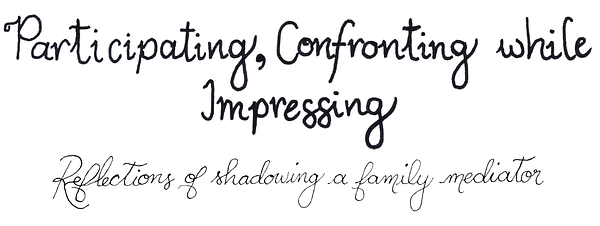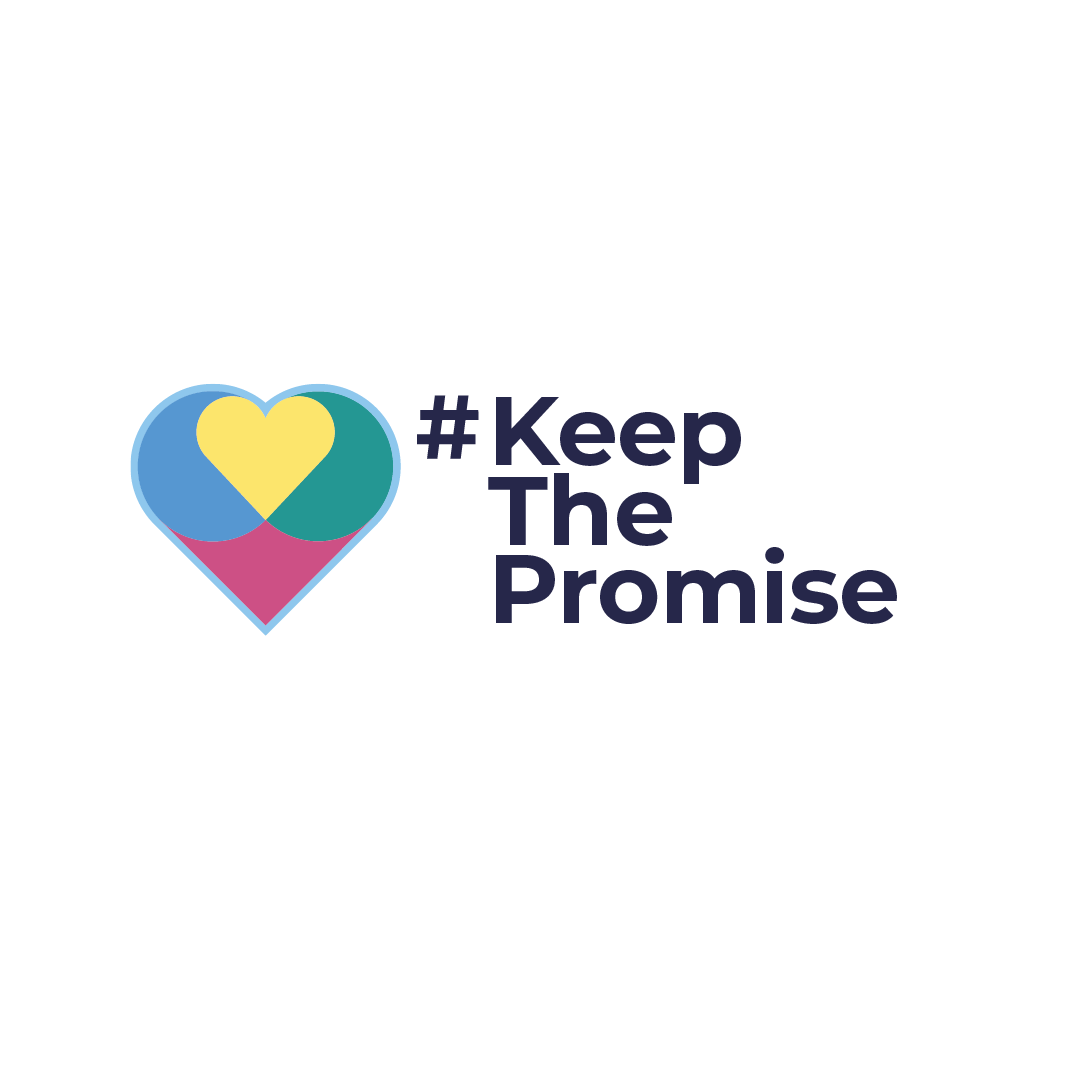Participating, Confronting while Impressing – Reflections of shadowing a family mediator
12 Aug 2019 By Haley Weir

Shadowing a family mediator through Cyrenians, helped bring awareness to how emotions are (or are not) addressed in conflict. During one of my first pre-mediation sessions with a parent of an estranged young person shed some light on the family tensions, unresolved anger, disagreements that all of a sudden, lead to years of noninteraction.
We (the mediators) were assured by this parent that their approach would be to “look for the silver lining,” and “make it seem like everything was fine,” when describing their conflict and potential meeting with their child for the first time in over a year. My first thought was, “How would you do that?” followed closely by “Why would you do that?”
Meeting a third party stranger, to discuss highly personal, emotive issues can be incredibly uncomfortable and parties may want to appear positive and optimistic. Our brains quickly re-route to widely accepted social scripts and clichés; it is energy efficient and safe. In this scenario, everything was quite clearly not fine; hurt feelings and misunderstandings were both barriers to meaningful communication. Both parties admitted they shared a desire for “things to be better,” admitting things were in fact, less than fine, so why label it as such?
One challenge engaging with families is peeling away common social narratives about conflict (good vs. bad) to get to the substantive underlying issues. Parents were especially (and understandably) concerned about appearances, but this blocked dialogue about relationships’ weaknesses, degression or stagnation.
Emotions are not inherently good or bad but dichotomizing them as such promotes the culture of emotional suppression. This implies that only effective, useful, ‘good’ emotions should be felt and other “bad” emotions should be reframed as a positive or as the cliché goes, ‘find the silver lining.’ This is not viable. Emotions are neurobiological, natural responses that do not inherently come with a positive or negative connotation; it is simply our bodies’ response and instinct. There is nothing wrong with being angry, but there is something wrong about using physical violence. Being reassured that uncomfortable feelings are okay, it’s what we do with them that are more relevant, may make it easier to manage and respond to them.
This experience illustrated the importance of not shying away from difficult conversations and discomfort. To be effective, awkward questions had to be asked, and an even more awkward silence needed to ensue. This creation of space encourages parties to participate while perhaps normalizing the discomfort but importance of facing conflict.
Families wanted their relationships to be better and understood this was only possible through intentional, sincere action. I witnessed family members display vulnerable courage by discussing deeply personal issues. This often came with struggle or hesitation but willingness, hope and love were always present. After some initial rapport had been established, the openness and vulnerability that family members were willing to show us always impressed me.
Anyone who has ever had a difficult conversation (AKA everyone) can appreciate the consequences of word selection, body language and delivery; it all conveys a message. Impartiality is a pillar of mediation and putting this into practice takes constant mindfulness. Parties have an intricate story formed by decades of trauma, health, and socio-economic concerns. These experiences create and shape identity, how we interpret, respond and interact with the world. It can sometimes seem impossible to say anything at all that could not be interpreted as a bias or implication. In high stress, high stakes situations it is logical that people are defensive, wanting to protect themselves and share their narrative.
I was given autonomy to engage and practice as a volunteer and new mediator while always feeling support. I appreciate my shadowing experience working with an organization dedicated to ADR and conflict skills education. It highlighted how families interact and cope with conflict, getting caught in the rhetoric of emotions but more importantly their willingness to open their homes to engage in a difficult process in hopes of things getting better. I believe supporting emotional resilience of those in conflict by allowing them to have and express emotions without judgment and offer outlets and a simplified understanding of complicated, inevitable natural emotions. It is absolutely crucial to have unpleasant conversations, acknowledge how unpleasant it is in order to move forward and be open to receiving new feelings.





